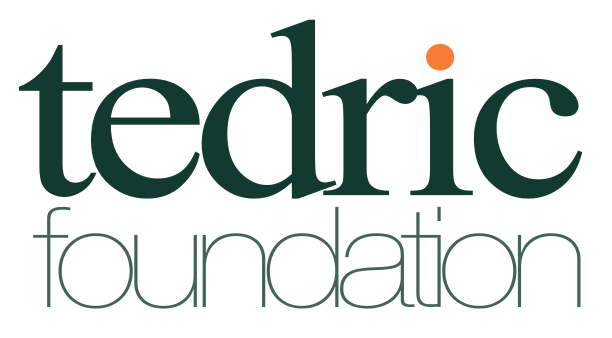New Order for Humanity
SOCIAL PRINCIPLES AND ETIQUETTE IN THE LIGHT OF SURAH AL-HUJURAT
The word Al-hujurat isthe plural and definite formof hujrah which means the private apartment. The verse 4 of this chapter is the only use of this word in the Quran, and due to this uniqueness, the chapter is named after it. Surah Al-Hujurat is the Madani Surah, contains eighteen verses in two sections.Allah Almighty mentioned some vital important ethics and rules of society in this chapter. Surah Al-Hujurat contains etiquette and norms to be observed in the Muslim community, including the proper conduct towards the Islamic prophet Muhammadï·º , an injunction against acting on news without verification, a call for peace and reconciliation, as well injunctions against defamation, suspicion, and backbiting. It also declares a universal brotherhood among Muslims. The thirteenth verse, one of the most famous in the Quran, is understood by Muslim scholars to establish equality with regards to race and origin only God can determine ones nobility based on his piety. In this article, the researcher conducted the research on some etiquettes and ethics of the society and Muslim community in the light of Surah Al-Hujurat.The aim of this study is to give awarenessand importance of moral values of society to all Muslim and to explain how society can be peaceful and free from all defects. This study is beneficial not only to the particular group but to all human being. The researcher mentioned the detail after studying some authentic Tafseer, Hadith and subject-relevant books andalso related Surah Al-Hujurat to current social system and mentioned some findings, whereas summary and suggestions are also given at the end of this article.
Major Themes and Teachings
1. Respect and Etiquette with the Prophet Muhammad (PBUH)
Verses 1–5 highlight the importance of proper behavior and speech in the presence of the Prophet:
“O you who believe! Do not put [yourselves] forward before Allah and His Messenger...” (49:1)
“Do not raise your voices above the voice of the Prophet...” (49:2)
These verses emphasize that believers must approach matters of religion with humility and must not speak or act disrespectfully toward the Prophet. The etiquette is extended to how Muslims should treat religious authority and sacred knowledge in general.
2. Social Harmony and Brotherhood
Verse 10 of the surah is one of the most powerful declarations of unity in Islam:
“The believers are but brothers, so make settlement between your brothers. And fear Allah that you may receive mercy.” (49:10)
This verse encourages reconciliation between Muslims who are in conflict and establishes brotherhood as a fundamental value. It recognizes human disagreement but insists on peaceful resolution through fairness and justice.
3. Avoiding Negative Social Behavior
In verses 11–12, the surah outlines a list of forbidden actions that can harm relationships:
- Mockery and ridicule: “Let not a people ridicule [another] people...” (49:11)
- Calling others by offensive nicknames.
- Slander and backbiting: Backbiting is likened to eating the flesh of one’s dead brother—an extremely graphic and powerful image to highlight its severity (49:12).
- Suspicion and spying: Islam forbids baseless suspicions and invading others’ privacy.
These verses are a clear moral code intended to preserve dignity, trust, and mutual respect in a community.
4. Equality and the True Measure of Honor
One of the most famous and universally quoted verses in the Qur’an is found in this surah:
“O mankind! Indeed, We have created you from male and female and made you peoples and tribes so that you may know one another. Indeed, the most noble of you in the sight of Allah is the most righteous of you...” (49:13)
This verse shatters any notion of racial or tribal superiority. It affirms that all humans are equal in origin, and that true honor is based not on ethnicity, wealth, or status, but on taqwa (God-consciousness or righteousness).
5. Faith vs. Verbal Claim
In verses 14–17, the surah distinguishes between merely declaring belief (Islam) and possessing true faith (Iman):
“The Bedouins say, ‘We have believed.’ Say, ‘You have not [yet] believed; but say [instead], ‘We have submitted,’ for faith has not yet entered your hearts...” (49:14)
This passage warns against hypocrisy and superficial religiosity. It underlines that true faith involves a deep spiritual commitment, not just verbal affirmation or outward rituals.
Impact and Relevance Today
Surah Al-Hujurat remains deeply relevant in the modern age, especially in our digital era where communication is instant, public, and often careless. The principles outlined in this surah apply directly to:
- Online behavior (avoiding insults, mockery, and spreading gossip).
- Promoting interfaith and intercultural understanding.
- Resolving disputes peacefully in families and communities.
- Recognizing equality and rejecting racism or discrimination.
Conclusion
Surah Al-Hujurat is a profound chapter that serves as an ethical charter for Muslim social life. It lays the foundation for mutual respect, unity, humility, and moral integrity. By following its guidance, Muslims can build communities based on justice, brotherhood, and compassion—values that are timeless and essential for any society to thrive.
Background and Context
Revealed during the Prophet’s time in Medina, where the Muslim community was growing and becoming more diverse, Surah Al-Hujurat addresses specific social issues arising in a developing Islamic society. The surah responds to incidents where etiquette and respect toward the Prophet and among believers were lacking due to ignorance, tribal pride, or new converts’ behavior.
Ethics in journalism and media
This is the text area for a paragraph describing this service. You may want to give examples of the service and who may benefit. Describe the benefits and advantages of this group of services, explaining to users why they should choose your company.
Law of war
This is the text area for a paragraph describing this service. You may want to give examples of the service and who may benefit. Describe the benefits and advantages of this group of services, explaining to users why they should choose your company.
The word Al-hujurat is the plural and definite form of hujrah which means the private apartment. The verse 4 of this chapter is the only use of this word in the Quran, and due to this uniqueness, the chapter is named after it. Surah Al-Hujurat is the Madani Surah, contains eighteen verses in two sections
Hujurat Project Topics




